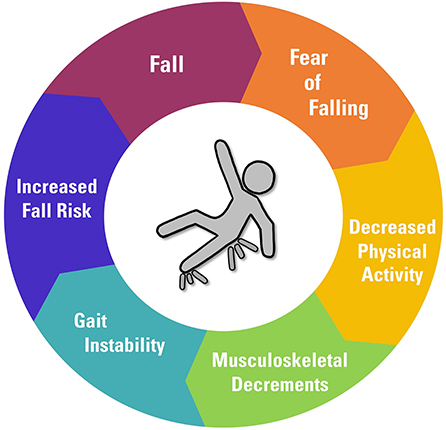Dementia Fall Risk - The Facts
Dementia Fall Risk - The Facts
Blog Article
Unknown Facts About Dementia Fall Risk
Table of ContentsThe Ultimate Guide To Dementia Fall Risk9 Simple Techniques For Dementia Fall RiskDementia Fall Risk for DummiesIndicators on Dementia Fall Risk You Need To KnowThe Of Dementia Fall Risk
You could be nervous because you've had a loss prior to or because you've discovered you're beginning to really feel unstable on your feet. You may have seen changes to your health, or simply really feel like you're slowing down a little. Whatever the factor, it isn't uncommon to come to be cautious and lose self-confidence, and this can quit you doing the things you made use of to do and make you really feel extra separated.If you've had a fall or you've begun to really feel unstable, inform your medical professional even if you feel great otherwise. Your doctor can examine your balance and the method you stroll to see if renovations can be made. They may be able to refer you for a drops risk evaluation or to the falls avoidance service.
This information can be gotten with interviews with the individual, their caretakers, and an evaluation of their clinical records. Begin by asking the individual about their background of drops, including the frequency and situations of any current falls. Dementia Fall Risk. Inquire about any wheelchair problems they might experience, such as unsteady or problem walking
Conduct a detailed review of the person's drugs, paying certain attention to those known to boost the danger of falls, such as sedatives or medicines that lower blood pressure. Figure out if they are taking several medicines or if there have been recent changes in their medication routine. Review the person's home atmosphere for potential hazards that could raise the threat of falls, such as poor lighting, loosened rugs, or lack of grab bars in the washroom.
Dementia Fall Risk Fundamentals Explained
Guide the person with the fall threat evaluation form, explaining each concern and tape-recording their responses accurately. Guarantee that the specific comprehends the objective of the evaluation and feels comfy providing truthful solutions. Compute the complete danger score based on the responses offered in the assessment type. Determine the person's threat group (reduced, medium, or high) based on the complete rating and the existence of automatic risky condition variables.
On a regular basis keep an eye on the person's progress and reassess their risk of drops as required. Supply recurring education and learning and support to promote safety and reduce the risk right here of drops in their day-to-day living tasks.
Several researches have shown that physical treatment can assist to decrease the threat of dropping in adults ages 65 and older. In a brand-new research study (that took a look at drops danger in women ages 80 and older), scientists determined the economic effect of picking physical treatment to prevent drops, and they discovered that doing so conserves $2,144, including all the hidden prices of your time, pain, missed out on life events, and the bucks paid for solutions.
Not known Incorrect Statements About Dementia Fall Risk
Evaluating your balance, stamina, and strolling capacity. A home safety and security assessment. Based on the assessment results, your physical therapist will certainly design a plan that is tailored to your particular requirements.
Older adults who have problem walking and speaking at the exact same time go to find more information a higher danger of falling. Dementia Fall Risk. To assist boost your security during everyday activities, your physiotherapist may develop a training program that will challenge you to maintain standing and walking while you do another job. Instances consist of strolling or standing while counting backwards, having a discussion, or bring a bag of groceries
Your physiotherapist also can identify which activities you need to avoid to stay secure. Community-based falls avoidance programs aid people to: Minimize their worry of falling. Establish objectives for boosting their physical task. Make their homes much safer. Exercise extra to raise their stamina and balance. These programs frequently are led by volunteer trainers.
Not known Facts About Dementia Fall Risk

Measles, or rubeola, is an extremely contagious, intense viral contagious illness brought on by the measles infection. Some people think of measles as simply a rash and high temperature that improves in a couple of days; nevertheless, measles can create severe health difficulties, particularly in youngsters younger than 5-years-old. The most effective security against measles is the measles, mumps, and rubella (MMR) injection.
Falls are a typical root cause of injury amongst older grownups. According to the CDC, in one year alone, fall-related injuries added to over $50 billion in clinical costs (Dementia Fall Risk). In health center settings, older grownups are at especially high threat of falls important site since their reduced wheelchair from being confined to a space or bed.
Dementia Fall Risk Can Be Fun For Anyone
-copy-5.jpg)
She has no background of falls, her gait is stable, and she nullifies with no problems. The previous nurse states that she calls for assistance to the bathroom when she needs to go.
Examples of common fall interventions/measures consist of: Making sure a client's vital items are within reach. Past comprehending how to make use of the Johns Hopkins Autumn Risk Analysis Tool, it's vital that centers incorporate its usage into an extra extensive loss prevention strategy.
Report this page